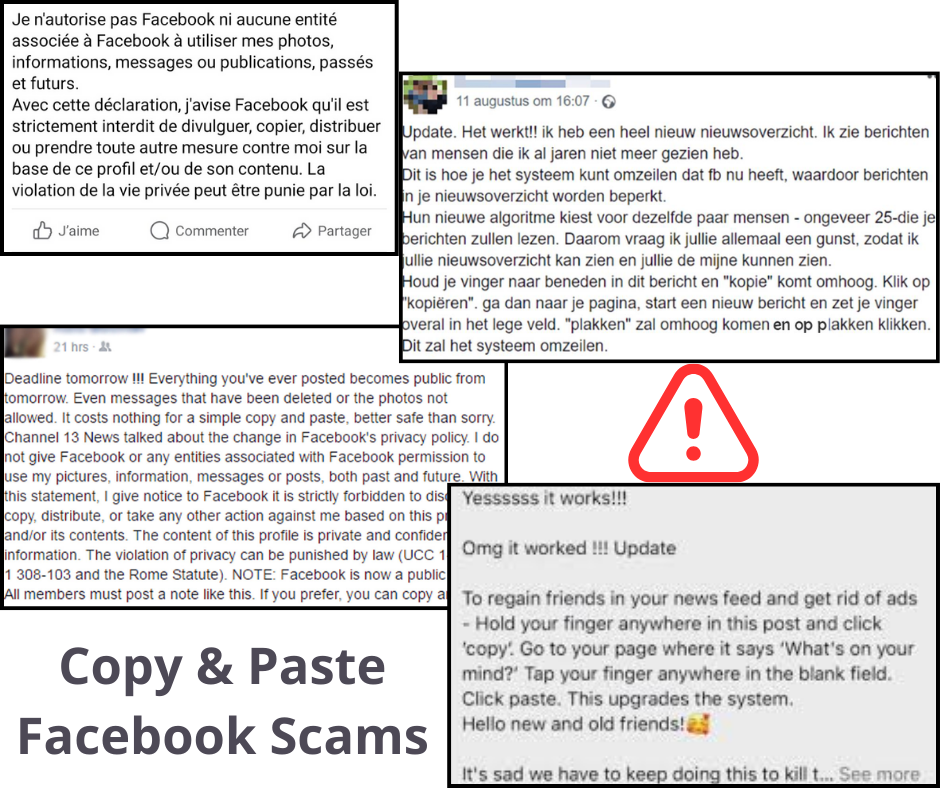You may have seen them before: messages posted by friends on their News Feed asking Facebook or Meta not to use their data or photos. They've been shared en masse and appearing in various forms for years. But are they useful?
Publishing a statement on your news feed has no legal value in itself and therefore does not protect your data.
When you open a Facebook account, you must accept the terms and conditions of use. By accepting them, you give your consent for Meta to use your data. This applies to all Meta products, of which Facebook, Messenger and Instagram are the best known.
Here is an extract from Meta's terms of service:
"When you share, post or import content protected by intellectual property rights on or in connection with our Products, you grant us a non-exclusive, transferable, sub-licensable, royalty-free, worldwide licence to host, use, distribute, modify, perform, copy, publicly perform or publicly display, translate and create derivative works from your content. This means, for example, that if you share a photo on Facebook, you give us permission to store, copy and share it with others (again, in accordance with your settings), such as Meta Products or service providers that support such products and services. The licence ends when your content is removed from our systems."
As soon as you start using a Meta product, you authorise the use of your data as described above. It makes no difference whether or not you post messages on your News Feed.
No. Such messages have been appearing for many years and are a variant of chain letters and chain emails. There's even a name for it: the Facebook cut and paste hoax. These are warnings or recommendations circulated by email or social media that are not true. One of them asks you to copy and paste the message, then share it with your contacts. As the text is copied several times instead of being shared, it is difficult to know where it comes from and what its purpose is.
A similar message comes up regularly: a request to Facebook to be able to see the publications of a larger number of friends. But this too is a hoax. The algorithms used by Meta to share your friends' publications are a well-kept secret and you cannot influence them in this way.
- If you do not agree with Meta's terms of use, there is nothing you can do but not create a Facebook account or delete your existing account.
- Is it too intrusive for you? Then take a look at your privacy settings and change them. You can do this very easily via the Facebook settings.
Don't forget :
- Always think twice before sharing anything on Facebook.
- Don't share Facebook hoaxes copied and pasted onto your News Feed: they're false information and make no sense!

